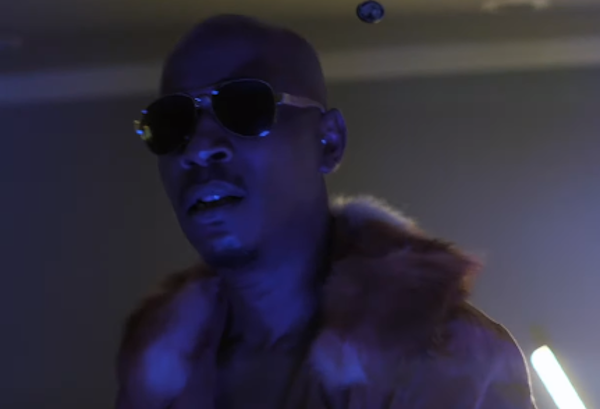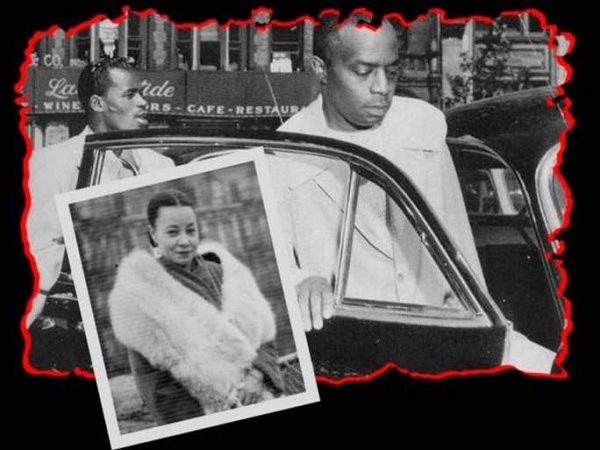Bass players are a peculiar lot. They aren’t on the front line like the lead singer or the guitarist. They aren’t wild like the drummer or electric like the keyboard. They are a crucial part of a group that never warrants that front line attention. The legendary Stanley Clarke said fuck that, and decided that he wasn’t going to slink from the spotlight because of the instrument he played. The result is an incredible music career that includes playing on 40 albums and scoring 60 movies. Clarke was a member of groundbreaking jazz fusion band Return to Forever, along with collaborations with Jeff Beck, Deborah Holland, George Duke and countless other luminaries. Now Clarke presides over a newly minted record label and with his coming out party imminent, he spoke to Planet Ill about music, the record business and more.
Audio Stanley Clarke interview Cut Part 1
Planet Ill:You’ve been in the music for years and years. What made you decide that now was the time to be an executive?
Stanley Clarke: In many ways, I’ve been doing like executive type stuff throughout my career. This isn’t the first record company or label that I’ve been connected with. Back in the early 90’s I had a little label but it was really more of a glorified production company.
This label that I have right now is a real bonafide record label. It isn’t connected to a larger company. Back in the early days, what they used to do to make certain artists that they liked, they wanted to make sure they could keep, would do favors for them. Like, “Oh, I have a label now.” Through Columbia or through Epic records. But they were really just production companies
Planet Ill: Boutique Labels. A&R deals.
Stanley Clarke:Yeah. They were just really big fancy production companies because you were under the umbrella of the bigger company. This label that I have now, we’re not under anybody. We have our own distribution, we pay for everything; we pay the bills ourself. And you know even though the economy says one thing, which is contrary to anyone starting a new business, I don’t really go for that. To me, you make music and you create whenever you feel that you have to do that. Now if you have to adjust things because of the economy as far as your budget is concerned, I am very fortunate that the first four artists that I singed were well aware of what’s going on out there.
I actually think that’s true of a lot of artists out there today. The days of getting singed to a label and walking away with a bag full of money before you even went to the studio; those days are over. The big companies are not the “big companies” anymore. You have independent small labels such as myself. It’s a complete paradigm shift in the industry.
The one thing that I do like is that the technology that we have out here, particularly the use of the Internet makes it easier to sell and disseminate the music. So it’s fine. It’s a smaller sort of game than when I was coming up in the 70’s. I used to tell some of these guys, that I record with, that your whole budget was like me and George Duke’s trip to go make a record back in the 70’s. They’d get so upset when I say that but it’s the truth. There was sooo much money back in the days. It was fun, that was what it was and now it’s different and this is what this is and we move on. Nevertheless, we’re going to have a great party on the 28th. We’re going to have a big jam session and feature videos from the artists.
Planet Ill: Why do you think, after all these years, that artists still sign “bad” deals?
Stanley Clarke: A lot of it has to do with not reading contracts. That ,coupled with hunger to make it. One of the most blinding things that can happen to a person is their own desire to do anything. It’s the nature of the beast. It’s funny, I mentioned George Duke earlier, he and I were talking about how many contracts we signed that we didn’t read.
Even if your lawyer is saying it’s okay to sign it, you say ok and you just sign it. You find out years later that you couldn’t even trust your lawyer. Not that you couldn’t trust him but the old record business was not necessarily set up to benefit the artist. You could take the deal structure, just the way the basic deal structure was, and you could work with it if you were a huge artist, someone like Michael Jackson…
Planet Ill: He was getting roughly $2.00 a record…
Stanley Clarke: But still that’s unfair! Think of it. He was probably getting…maybe he got 30% probably less than that. So imagine if it was swung the other way where the record company walked away with 30% and Michael walked away with 70. Of course those record companies wouldn’t have the big buildings, the big limos, and probably their ability to promote might have been hampered but who knows? The point is for the most part it was like a 15-20/80 difference. That was the basic deal and the record companies made a ton of money. And on top of that, they were keeping masters.
Funny I talk about blindness, one of the few guys that owned his masters and I think it’s because he was blind ; he couldn’t see the all-powerful guy sitting up in a chair with a suit on, was Ray Charles. Ray was like, “I gotta have my masters, yunno!” They said no you can’t have it, he said well, you can’t haveme. They gave him his masters.
It was tough back then, you know a lot of new artists back in the 60’s 70’s, an artist comes along and whatever the guy wants or the girl wants, you have a record company there that looks like they can provide that and it’s going to go on the dotted line. All the fine points usually get looked at later.
Look at those girls TLC. Come on man. These girls should be helping the United States economy right now. Give them a loan all the records they sold. They ended up with nothing . Nothing. We’re talking selling 25-30 million records.
Planet Ill: You went to high school in Philadelphia. That city is going through a fiscal crisis right now and they are cutting music programs. How important was school and those programs in fostering your love of music?
Stanley Clarke: My school years in Philadelphia, it was an amazing time. Every school had a vibrant music department and outside of that they had stuff in the private sector, the private school system that was funded in part by the government and private investment. Now they’re cutting all that stuff; they want to cut the National Endowment of the Arts.
My feeling about that is the reason why they want to cut it, is because it’s an easy cut. There’s no logic like we’re going to cut something that will save our kids and probably lower crime. If I had a choice I would never cut anything from the youth. It’s illogical. Crime is already bad enough in Philadelphia.
Planet Ill: What about the upright bass speaks to you? Why that as opposed to any other instrument?
Stanley Clarke: You know what man it was a funny story. When I wen to the music room on the day they had given out instruments, I had already went through the violin and the cello. I was tall so they had thee little baby instruments. They had the bass there that nobody else would even look at. It had a very bad sound but I dug the way it looked and I liked the fact that it would distinguish me from other players cause nobody else had an acoustic bass.
I picked it up, and man it was tough. I spent years trying to get that thing to sound right. That was my life’s quest, trying to get the acoustic bass to sound good.
Planet Ill: You found different ways over the years to play the bass in ways other people couldn’t. Was that a result of trial and error or just your “quest to make the instrument sound good?”
Stanley Clarke: I was trying to make it sound good. I didn’t have the typical bass player mentality. I remember I was well over 13, I saw the Rolling Stones on the Ed Sullivan Show. I noticed there was this one guy, everybody else was jumping around and having fun and there was one guy in the bag that looked like somebody stole his mother. That was Bill Wyman the bass player. I just always though man if I ever played the bass I would never ever look like that.
I used to notice bass players as the guys that stood in the back. Maybe I rebelled against that but I just never thought that anybody was any better or different than me whether they sung whether they did this or whether they did that. I was into writing music and putting music together. Bass Is almost a secondary instrument It just happens to be the instrument that I play.
Planet Ill: What was your favorite group experience?
Stanley Clarke: I have to say that some of the most exciting, fun times I’ve had on the stage with George Duke. There was something about playing with George that i can’t put my finger on. You never knew what was going to happen and everything was really funky. It was just, we had a great time.
I also liked the fact that Return to Forever was very innovative. When we played, we came out there, we didn’t realize we were playing something knew. You know when you’re playing you’re never like, “Wow, this is some new shit that we’re playing.” When you’re young and you’re out there, you’re not thinking like that. That’s something you look back in retrospect. But at the time, we were just every aggressive bout what we were doing and just very happy and excited. We were young we had a lot of energy. At that age you can go out and tour for ten months, no sweat. So we just had a lot of energy to just push it to the max. We still reap the benefits form that today.
Return to Forever – “After The Cosmic Rain”
Follow Us on Twitter @ http://twitter.com/planetill
Follow Odeisel on Twitter @ http://twitter.com/odeisel
Join Us on the Planet Ill Facebook Group for more discussion
Follow us on Networked Blogs






2 thoughts on “Stanley Clarke:Bass, How High Can You Go? Pt. 1”